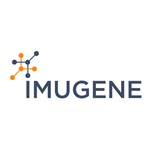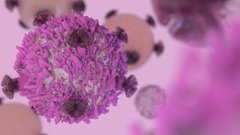Immuno-oncology: a new horizon in the fight against cancer
Hey! Looks like you have stumbled on the section of our website where we have archived articles from our old business model.
In 2019 the original founding team returned to run Next Investors, we changed our business model to only write about stocks we carefully research and are invested in for the long term.
The below articles were written under our previous business model. We have kept these articles online here for your reference.
Our new mission is to build a high performing ASX micro cap investment portfolio and share our research, analysis and investment strategy with our readers.
Click Here to View Latest Articles
While a diagnosis of cancer is still likely to strike fear into the heart of any patient and their loved ones, treatments for the horrible disease are progressing – and for many cancers, survival rates are steadily heading in the right direction.
As this article in The Economist puts it, ‘cancer may be relentless; so too is science’. When you think of cancer treatment, a few key words might spring to mind. Chemotherapy, radiation, surgery; the trinity of treatment options that most people know of, for most types of cancer.
A perhaps less obvious, but no doubt high potential, option for treatment is immuno-oncology – that is, cancer vaccines. It is this emerging (or more accurately, re-emerging) field that is causing the most excitement among researchers and medical professionals, and with good reason.
In simplified terms, the human immune system has ‘brakes’ that can be triggered by cancer cells. These brakes disable the system’s ability to attack the destructive cells and protect the body from them. The work of immuno-oncology has thus been to ‘kickstart’ the immune system, via deactivating these brakes and allowing the immune system’s white blood cells to go about their health-protecting business.
Recent early trials have produced some convincing results, showing how effective some of these immunotherapy treatments can be, even allowing advanced patients to go into remission.
Right now, there are hundreds of clinical trials underway to further test these therapies, targeting a broad range of cancers along the spectrum. Some of these drugs are even being studied for their ability to reprogram immune cells and edit their genomes.
In many ways, vaccines and therapies targeting the immune system are not original – medical professionals and researchers have been exploring the notion seriously since the 1970s – yet the renewal of interest, and considerable investment, has everything to do with advances in biotechnology that could increase the potency of these treatments in a profound way.
New players advancing immuno-oncology drug candidates
This renewed interest has led to the recent rise of small-cap biotechnology companies in the immuno-oncology space. These include cancer cure hopefuls like Imugene (ASX:IMU), a clinical stage company headquarted in Melbourne. Its lead product, the HER-Vaxx B cell peptide vaccine, has some important differences to earlier peptide vaccines.
Overall this is an early stage play and as such any investment decision should be made with caution and professional financial advice should be sought.
Historically, peptide vaccines have produced a high failure rate – the most recent and well-known example being the HER-2+ vaccine NeuVax by Galena Biopharma. What many of the failed vaccines have in common is that they are T cell vaccines, specifically CTL or cytotoxic T cell vaccines, which use short peptides to induce a cytotoxic T cell response.
These drugs work off a mechanism that sounds promising in theory, yet in practice fail to have the desired result in large trial groups.
“The failure of the earlier vaccines is most likely caused by the cancer evading the T cell response caused by the vaccine itself,” CEO of Imugene, Leslie Chong, said.
“As we have learnt in the last five years, a common method for the cancer to evade the T cell is by turning on the PD1/PD-L1 checkpoint. The cancer also down-regulates the mechanism for alerting the T cells into action. A further issue in larger populations is that these T cell vaccines require very specific patient populations.”
It is at this crucial point that IMU’s HER-Vaxx differs, and brings a new sense of hope to the promises inherent in its predecessors.
“HER-Vaxx is not a T cell vaccine, it is a B cell vaccine using peptide epitopes from a cancer receptor to induce the immunße system to mount an antibody response against cancer cells over-expressing a marker (HER-2),” she said. In other words, HER-Vaxx is an immunotherapy drug designed to treat tumours that over-express the HER-2/neu receptor, including gastric, breast, ovarian, lung and pancreatic cancers.
“Of importance is that we, and others (academics), have shown that our B cell epitopes enable the immune system to break tolerance against a self-protein, HER-2. The B cell route has worked already, for example the antigens in Merck’s HPV cancer vaccine Gardasill are B cell epitopes. Hence, we have entered the clinic with a high level of expectation. We have been at it for the last 10 years with a Phase 1a study in breast cancer providing the proof of concept,” she said.
Professor Thomas Yau Chung-cheung, an oncologist at the Queen Mary Hospital in Hong Kong assisting with IMU’s HER-Vaxx trials, is highly optimistic. Yesterday, he was quoted saying immunotherapy “is likely to replace chemo gradually and become the cornerstone of treating tumours”.
“So far the patients who are suitable for immunotherapy are seeing good results, and it can even treat cancer patients in the late stages,” he said.
While the work IMU is undertaking sounds promising, it is still an early stage biotech company and success is not guaranteed. Before making an investment, seek professional financial advice.
Whichever company can position itself at the front of the pack, the message remains clear – the next chapter in cancer treatment will be intimately linked with the rapidly growing field of immunotherapy, despite a fraught history that at one point seemed to lead only to dead-ends.
Re-focusing on the immune system
Chief medical officer of biopharmaceutical company Bavarian Nordic (DK:BAVA), Christopher Heery, views the immune system as vital to fighting cancer, noting that the cancer cases we hearabout (the ones that require intervention) are the times where the immune system failed to stop the cancer. A fact that means the medical community may have discounted all the cases in which it did.
Heery left his role working with the Laboratory of Tumour Immunology and Biology clinical trials in order to be part of the “revolution of vaccines”.
“We couldn’t get any big pharmaceutical company to even talk to us about a cancer vaccine,” Heery said about his time at the institute. Yet now, partnerships and deals involving vaccine-making biotechs are common. “I don’t think that’s a coincidence,” he said. “I think they’re reading the tea leaves.”
Tea leaves or otherwise, the companies – whether they be small-caps or Big Pharma – believe they are on the right track. IMU in particular boasts a formidable team with world leading immunologist Prof. Dr. Ursula Wiedermann, and world leading oncologist, Prof. Dr. Christoph Zieliniski contributing to inventing the company’s B cell peptide therapy.
A line of treatment with broadening application
Not only is immuno-oncology emerging as a cancer treatment in its own right, it has also shown considerable potential in being used as an adjunctive therapy alongside chemotherapy or radiation. Further, its usefulness has been indicated across a broad range of cancers.
According to Jedd Wolchok – medical oncologist at Memorial Sloan Kettering – one notable difference between immunotherapies and other targeted therapies seems to be the potential for longer-lasting responses to the drugs, and in some cases a continuing effect after therapy is ceased.
Dr Wolchok describes these states as a “chronic struggle between a patient’s immune system and cancer,” a response that drastically differs from what is seen in patients after chemotherapy, for example. The implication according to Dr Wolchok, is that over time the immune response can evolve, just as cancer can.
It is for these reasons and more that the word ‘cure’ is being used, albeit cautiously, in the field of immuno-oncology. Last year an anti PD-1 drug Opdivo developed by BMS Pharmaceutical was reported as being responsible for clearing former US President Jimmy Carter of the metastatic melanoma that had spread to his liver and brain. Closer to home, the same drug (alongside other immunotherapies) received enormous publicity for helping Hawthorn’s star forward Jarryd Roughead in his battle with melanoma. Certainly, both stories were good press for this exciting, yet still emerging, line of cancer treatment.
This could be an important new horizon in the medical industry’s fight against the disease that continues to claim a staggering number of lives each year.
General Information Only
S3 Consortium Pty Ltd (S3, ‘we’, ‘us’, ‘our’) (CAR No. 433913) is a corporate authorised representative of LeMessurier Securities Pty Ltd (AFSL No. 296877). The information contained in this article is general information and is for informational purposes only. Any advice is general advice only. Any advice contained in this article does not constitute personal advice and S3 has not taken into consideration your personal objectives, financial situation or needs. Please seek your own independent professional advice before making any financial investment decision. Those persons acting upon information contained in this article do so entirely at their own risk.
Conflicts of Interest Notice
S3 and its associated entities may hold investments in companies featured in its articles, including through being paid in the securities of the companies we provide commentary on. We disclose the securities held in relation to a particular company that we provide commentary on. Refer to our Disclosure Policy for information on our self-imposed trading blackouts, hold conditions and de-risking (sell conditions) which seek to mitigate against any potential conflicts of interest.
Publication Notice and Disclaimer
The information contained in this article is current as at the publication date. At the time of publishing, the information contained in this article is based on sources which are available in the public domain that we consider to be reliable, and our own analysis of those sources. The views of the author may not reflect the views of the AFSL holder. Any decision by you to purchase securities in the companies featured in this article should be done so after you have sought your own independent professional advice regarding this information and made your own inquiries as to the validity of any information in this article.
Any forward-looking statements contained in this article are not guarantees or predictions of future performance, and involve known and unknown risks, uncertainties and other factors, many of which are beyond our control, and which may cause actual results or performance of companies featured to differ materially from those expressed in the statements contained in this article. S3 cannot and does not give any assurance that the results or performance expressed or implied by any forward-looking statements contained in this article will actually occur and readers are cautioned not to put undue reliance on forward-looking statements.
This article may include references to our past investing performance. Past performance is not a reliable indicator of our future investing performance.






